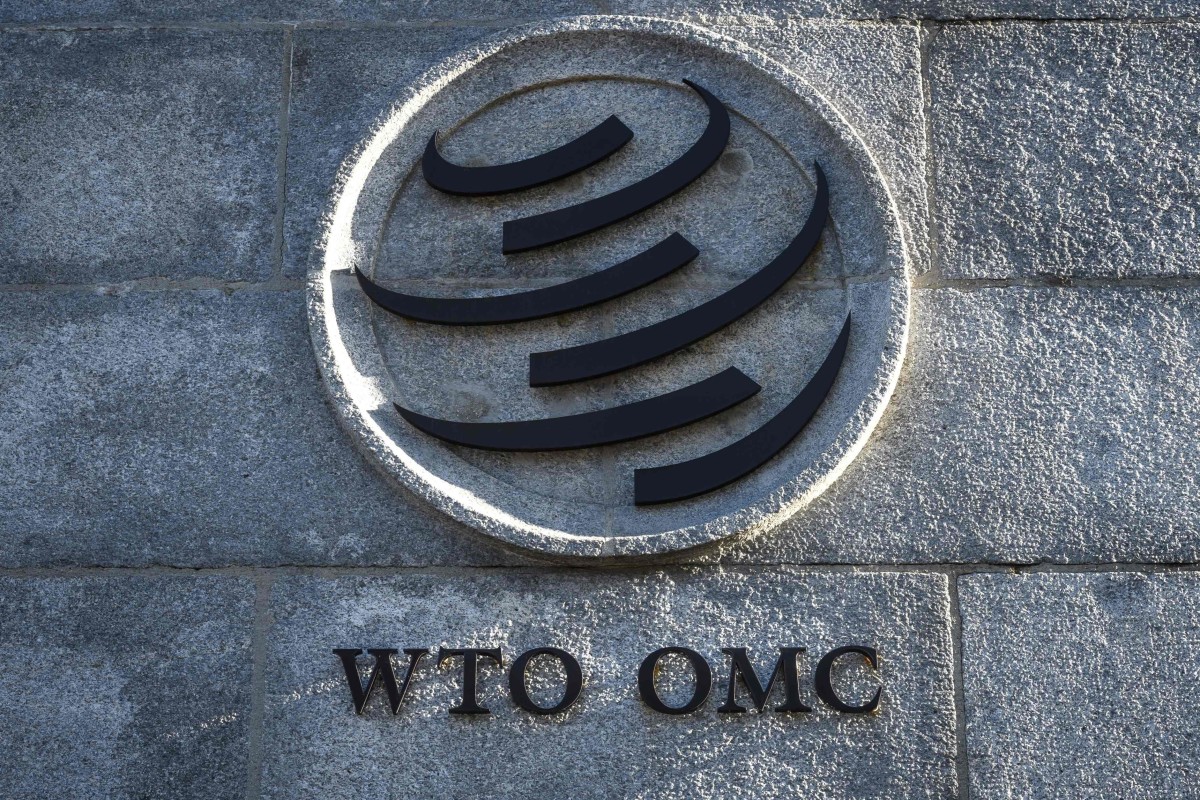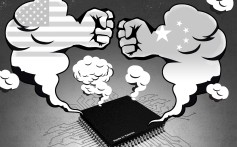At a meeting of the Council for Trade in Services, China said action taken by the US and India to ban Chinese apps broke World Trade Organization (WTO) rules
Experts warned that if China was to pursue such a case, it would likely be countersued because of its blocks on foreign apps and websites
Finbarr Bermingham
Published: , 5 Oct, 2020

Beijing has accused India and the US of flouting WTO rules with their bans on Chinese apps. Photo: AFP
At a closed-door meeting at the World Trade Organization (WTO), China has accused the United States and India of breaking global trading rules over bans on Chinese-made apps, including TikTok and WeChat.
China took to the floor at the Council for Trade in Services meeting on Friday to accuse the pair of taking measures that are “clearly inconsistent with WTO rules, restrict cross-border trading services and violate the basic principles and objectives of the multilateral trading system”, according to a Geneva trade official who was privy to the discussions.
US President Donald Trump has targeted the popular apps with a series of orders that aim to ban US entities from doing business with them or downloading them from American app stores. In addition, the Trump administration wants to force the sale of
TikTok to a US buyer by November 14.
Washington has claimed the apps collect data that “threatens to allow the Chinese Communist Party access to Americans’ personal and proprietary information – potentially allowing China to track the locations of Federal employees and contractors, build dossiers of personal information for blackmail, and conduct corporate espionage”.
In June, India banned TikTok and more than 50 other Chinese-made apps, including WeChat and Baidu Maps, after its military clashed with Chinese soldiers at their disputed border in the Himalayas. New Delhi claimed the apps were “stealing and surreptitiously transmitting users’ data in an unauthorised manner to servers which have locations outside India”.
The growing tech saga sparked a lengthy exchange at the council, during which China said there was no evidence to support the pair’s claims and that TikTok’s data collection was standard practise for thousands of apps worldwide.
The US said at the meeting its action against Chinese apps was in defence of its national security. The WTO’s General Agreement on Services allows for such action in cases “relating to the supply of services as carried out directly or indirectly for the purpose of provisioning a military establishment”.
However, China argued that Washington’s actions were a “clear abuse” of the relevant articles.
The growing tech saga sparked a lengthy exchange at the council, during which China said there was no evidence to support the pair’s claims and that TikTok’s data collection was standard practise for thousands of apps worldwide.
The US said at the meeting its action against Chinese apps was in defence of its national security. The WTO’s General Agreement on Services allows for such action in cases “relating to the supply of services as carried out directly or indirectly for the purpose of provisioning a military establishment”.
However, China argued that Washington’s actions were a “clear abuse” of the relevant articles.

India pointed to China’s own record on foreign investment and foreign apps and websites, saying that “China should first reflect on its own transparency record, as well as on its long-standing reluctance to fully open to foreign trading services”, according to the official.
Experts said that while the US and Indian policies might flout the rules, either nation would likely counter-sue if China were to bring a formal action because of its use of the
Great Firewall, an elaborate internet censorship system that blocks foreign websites.
However, Beijing’s success in a recent WTO case over Trump’s Section 301 tariffs may have emboldened it to bring a case nonetheless.
At the meeting, China said that “it is does not prohibit foreign apps and websites in its territory on a blanket basis”, the official said.
It’s a new era and I think there’s an interest for the WTO, and its members, to clarify the scope and boundaries of national securityJulien Chaisse
“[China] not doing anything is also risky. And China did take action against the US on tariffs and did win,” said Julien Chaisse, a trade professor at City University of Hong Kong. “These national security exceptions were never used for years. It’s a new era and I think there’s an interest for the WTO, and its members, to clarify the scope and boundaries of national security.”
The US has cited national security for numerous trade policies in recent years, including the imposition of tariffs on steel and aluminium producing countries, for which a WTO Panel was established in January 2019, sponsored by Mexico and joined by 30 other members, including China, Taiwan and the European Union. After the US eliminated the duties, the case was mutually withdrawn.
After the US eliminated the duties on steel and aluminium, the case was mutually withdrawn.
Bryan Mercurio, a trade law professor at the Chinese University of Hong Kong, said it was “surprising that the US and India had not yet filed a case against China in this regard”.
India is absolutely right to question China’s own transparency – and if it is not a blanket ban on foreign apps, what’s the reason for it?Bryan Mercurio
“Maybe they will see what China’s arguments are here and if China brings a case they’ll bring the exact same case against China,” he said. “India is absolutely right to question China’s own transparency – and if it is not a blanket ban on foreign apps, what’s the reason for it? I am guessing China would also go to a national security argument in defence.”
Alex Capri, a senior fellow at the National University of Singapore, said China’s rhetoric in Geneva fed into an “ongoing massive public relations campaign for its form of techno-diplomacy, because Chinese tech companies are in an existential crisis”.
“China continues to play the multilateral card, at least in terms of the optics. It is a similar tone to the one Xi Jinping struck at the UN, in which China is painted as the main sponsor of the multilateral system,” Capri said. “However I agree with India, China is not a market economy.”
This article appeared in the South China Morning Post print edition as: App bans breaches global trade rules, China says Banning Chinese apps ‘breaks global trading rules’

Finbarr Bermingham has been reporting on Asian trade since 2014. Prior to this, he covered global trade and economics in London. He joined the Post in 2018, before which he was Asia Editor at Global Trade Review and Trade Correspondent for the International Business Times.
No comments:
Post a Comment